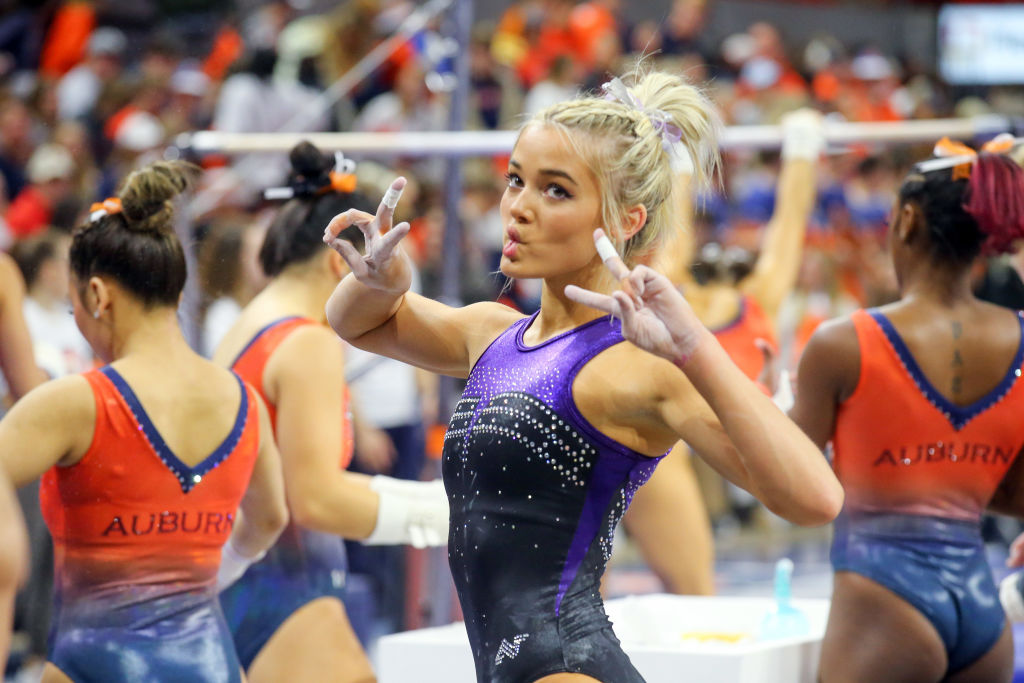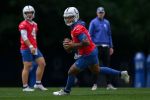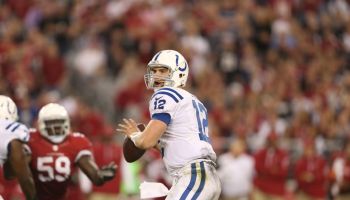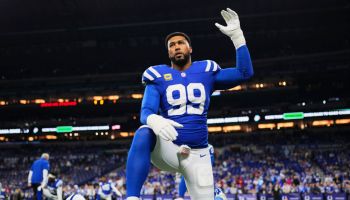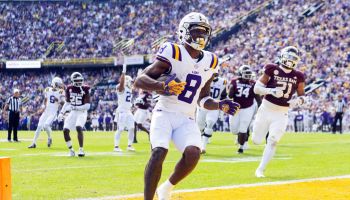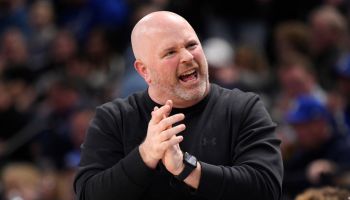INDIANAPOLIS – Another week, another NFL record set against the Colts defense.
That’s been too often the norm under Matt Eberflus.
In 2018 and 2019—the first two seasons with Eberflus leading the defense—the Colts became the first team in NFL history to allow opposing quarterbacks to complete at least 70 percent of their passes in consecutive seasons.
The individual highlights during that span was a career afternoon from then rookie Sam Darnold (24-of-30, 80 percent), Matt Ryan connecting on 18 straight passes and Drew Brees setting an NFL record by completing 96.7 percent of his throws (going 29-of-30 last December against the Colts), with even guys like Cody Kessler and Mason Rudolph having banner outings against Indianapolis.
One game into 2020 and Gardner Minshew has added his name to the ‘I’ve torched the Colts defense’ tour by throwing just one incompletion, in going 19-of-20 as the Jaguars pulled off the upset.
Far too often, opposing quarterbacks facing the Colts are able to ease into an early rhythm, thanks to facing a pass defense that offers minimal resistance when it comes to trying to disrupt timing. The ability for those QBs to not have to sift through much blurred vision in throwing the football has the Colts sitting back in their zone, more than okay with allowing historically high completion numbers.
Some of the issues that arise with a high completion percentage comes from the Colts defense staying on the field for longer stretches, missing chances to be in better control of field position or being around the football more.
Thus, it stresses so many other facets for the Colts.
The important decision makers for the Colts seem pretty content with the current approach.
“When I’m in the (press) box watching our games, if a team goes 80 (yards) on us, dinking and dunking the ball down the field, I can live with that,” Chris Ballard says.
“I’m really confident in the scheme on defense,” Frank Reich adds.
Even though Reich has a massive core belief of being uber aggressive and using his offense to dictate week-in-and-week out, the same cannot be said for the Colts defense.
It’s a passive unit when it comes to their coverage usages.
Such an approach allows opponents to stay ahead of the chains and keep the Colts full-on in their bend and hope it doesn’t break mentality (although the big plays that the Colts pride themselves on not giving up showed up too much late last season).
Instead of the Colts defense trying to dial up an advantage personnel wise and schematically—like they do offensively—that unit is left applying minimal stress against their opponents.
One NFL assistant coach commented last season that “the Colts defense is very easy to figure out…simplest defense we play all year by far.”
In 2019, as the Colts pass defense again struggled early in the year, we finally saw a major shift in approach, with heavy man concepts used in a huge primetime win over the vaunted Chiefs.
But as the rest of the season unfolded, we saw the Colts retreat to the unit we’ve seen too much in the Reich/Eberflus era.
Having a core philosophy of being more of a zone focused defense is fine, but a willingness to adapt, altering game plans week-to-week and being more complex when it comes to teams preparing for you is a must in today’s pass happy NFL.
To have a championship-caliber defense, feeling comfortable entering a week with different game plans able to be installed, based off the opponent’s strengths/weaknesses, is necessary.
Just look at a three-week stretch for the Colts this November.
The same defensive approach isn’t going to work in defending the Ravens (Lamar Jackson), the Titans (Derrick Henry) and the Packers (Aaron Rodgers).
The Colts have been a really solid run defense under Eberflus, but the pass defense forces that unit to be on the field far too often, missing out on chances to take away the ball more and/or control field position.
Reich would disagree with the notion that the Colts pass defense is too passive.
“One of the things I’m happy with Flus, in a million ways, I think he’s a great coach, has great demeanor, very disciplined and very strong convictions,” the head coach said this offseason when asked specifically about the evolvement of the Colts defensive scheme. “You get to know Flus and you see this really disciplined, strong guy and you think, ‘Does he have any flexibility? Can he adapt?’ Sometimes I think we mistakenly think guys like that are stuck in their ways. Flus is not stuck in his ways. Flus knows how to adapt. He knows how to adapt to our personnel. I see it (in) the last two years, when we get guys hurt or when certain pieces – ‘All right, now we have to play more zone.’ Or, ‘Hey, now we can play more man.’ Or ‘We’re not getting the production out of this coverage or this front or this blitz so we’re going to change it up.’ Flus, I think is the way a coach should be. He has really strong core principles, but yet he has a creative mind and he understands it’s about players needing to play those schemes. So you have to fit those players in there and do what’s best for them given your core principles. I’ve seen on a high level, he has that ability.”
This past Sunday was yet another banner day for an opposing QB against the Colts, as Minshew became the first quarterback in league history to complete at least 95 percent of his passes and toss three touchdowns on opening weekend.
Following another historic afternoon against his unit, Eberflus said the Colts need to do better at re-routing receivers.
Will it be a wake-up call to see more routine adjustments when it comes to the pass defense or just another ugly note on that unit’s resume?
